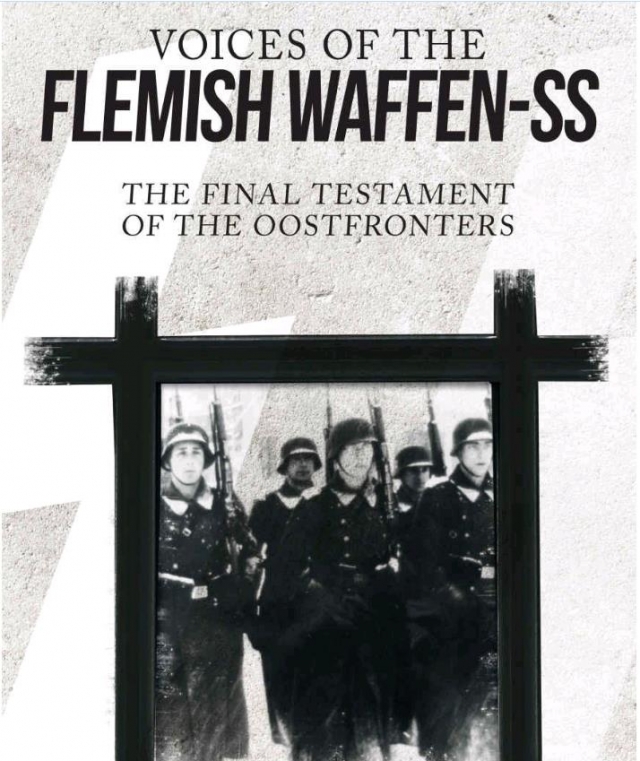Voices of the Flemish Waffen-SS
Book review

The Final Testament of the Oostfronters
Voices of the Flemish Waffen-SS, Jonathan Trigg, Amberley, 2017, 256p, £20-00. ISBN 978-1-4456-6636-5
The subtitle of Jonathan Trigg’s book is ‘The Final Testament of the Oostfronters’ and this very aptly guides us to his purpose in researching this topic. Given the unsettling knowledge that Belgian and Dutch nationals fought within the German military in the Second World War, this is a very sensitive issue to pursue.
Without in any way abandoning his principled objection to the Nazi regime and its devastating effect on Europe in the Holocaust and the enormity of the death rate and destruction on the Eastern Front, Trigg sets out to explore the motivation of the 10,000+ Flemish volunteers within the Waffen-SS. He does this by a series of interviews through which the Oostfronters speak for themselves.
He reveals that their decisions were driven by three principal factors. Possibly the most significant was Flemish nationalism. The Flemish people within Belgium had been treated since Belgian independence in 1831 as an under-class: their inherent national and cultural identity had been supressed by the Walloon majority, in such contexts as Flemish being unrecognised as their legitimate language, to the degree that French was both the only language taught in schools and the language of government, even to the degree that directional signs across Flanders were expressed in only in French. This had led to various nationalist formations and out of this had emerged strong pro-German and anti-French sentiments. Alongside this the faith of some was guided by a Roman Catholic hostility to Russia and communism. These ingredients of emergent and hopeful nationalism, of religious zeal to oppose atheism and genuine fear of Russian expansion led a small minority to become ‘Oostfronters’ but what is believed may have been more widely held at a philosophical level.
This is a very useful primary source. It explains, without excusing, the enormity of their involvement with the Waffen-SS. It enables us to understand motive within a much wider context without feeling that we have in any way been encouraged to sympathise with these people, of whose behaviour we might readily disapprove.

